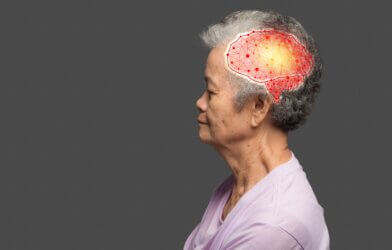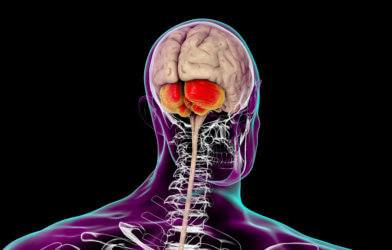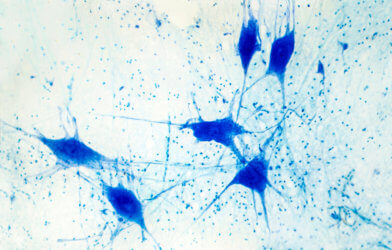Many hormones and chemicals in the body have a few key functions which are well-known. We’re learning that they also have a myriad of lesser roles and effects within the human body. Oxytocin is no exception. It’s essential for childbirth and lactation. It also functions as a neurotransmitter (chemical messenger), sending connecting signals from nerve cell to nerve cell in the brain. Oxytocin also has important roles in many behaviors and social interactions, such as sexual arousal, trust, and parent-infant bonding.
The loss of both memory and critical thinking in Alzheimer’s disease is attributed to the accumulation of β-amyloid protein (Aβ), which forms plaques in the brain and interferes with neural function. Research shows that oxytocin, a hormone responsible for childbirth and lactation, also regulates some behaviors in rodent central nervous system. This finding has stimulated interest in the potential role of oxytocin in reversing memory loss and thought disorders like Alzheimer’s.
Oxytocin, however, like many hormones, has difficulty crossing the blood-brain barrier. It needs to be delivered into the brain by intracerebroventricular (ICV) administration. The invasive technique is impractical for clinical use.
Intranasal (IN) administration may be a clinical option. Prof. A Chikamasa Yamashita at Tokyo University of Science recently patented a method to increase the efficiency of peptide delivery to the brain, by introducing cell-penetrating peptides (CPPs) and a penetration accelerating sequence (PAS) through structural modifications. Previous work had confirmed that both CPPs and the PAS benefit the nose-to-brain delivery pathway. Now, a group of researchers, led by Prof. Akiyoshi Saitoh and Prof. Jun-Ichiro Oka, leveraged this approach to prepare an oxytocin derivative: PAS-CPPs-oxytocin.
“We have previously shown that oxytocin reverses amyloid 𝛽 peptide (25-35) (A𝛽25-35)-induced impairment of synaptic plasticity in rodents. We wanted to see if PAS-CPPs-oxytocin could be delivered more efficiently to the mouse brain for clinical application, and if it improved cognitive functional behavior in mice,” states Prof. Oka, in a statement.
The group first developed an A𝛽25-35 peptide-induced amnesia model by supplying A𝛽25-35 to the mouse brain using ICV delivery. During the course of the study, the spatial working and spatial reference memories of these mice were evaluated using the Y-maze and Morris water maze (MWM) tests. After confirming that memory was affected in A𝛽25-35-impaired mice, PAS-CPPs-oxytocin and native oxytocin were administered using the IN and ICV routes respectively, to see if learning and memory improved in the treated mice. Finally, the distribution of the IN-administered oxytocin derivative in brain tissue was profiled by imaging of a fluorescent-tagged oxytocin derivative.
The results of this study were quite promising! The tagged PAS-CPPs-oxytocin showed distribution throughout the mouse brain following its IN administration. While the ICV administration of native oxytocin improved test outcomes in both the Y-maze and MWM tests, the IN administered PAS-CPPs-oxytocin yielded memory improving effects in the Y-maze test.
Hailing the team’s discovery, Prof. Oka says, “My team is the first to show that the oxytocin derivative can improve the A𝛽25-35-induced memory impairment in mice. This suggests that oxytocin may help reduce the cognitive decline we see in Alzheimer’s disease.
“Why are these findings clinically useful? Prof. Oka explains the broader implications of their work, “The oxytocin derivative enters the brain more efficiently. Furthermore, since IN delivery is a non-invasive procedure, this modified version of the hormone could potentially be a clinically viable treatment for Alzheimer’s disease.”
These findings were published online in Neuropsychopharmacology Reports.












